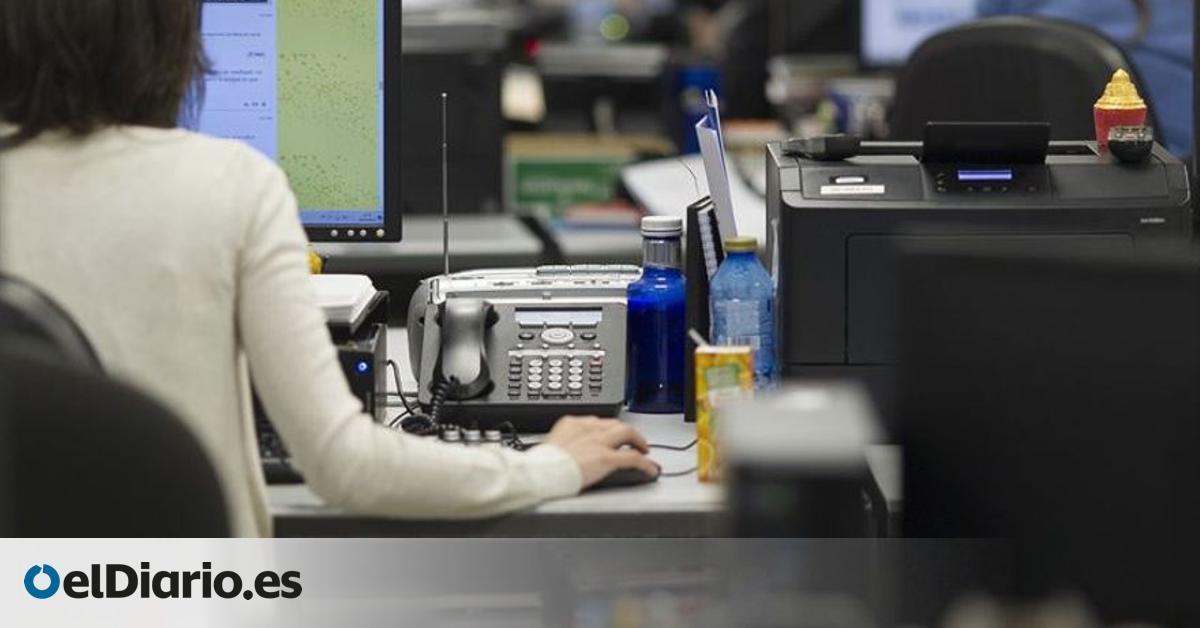
The Supreme Court has issued a ruling prohibiting companies from making their workers record visits to the bathroom as part of their recognized meal break. The judges agree with CCOO against a company contact center who made his employees clock bathroom visits as part of their lunch break. It also explains that the time that cannot be teleworked due to a power or internet outage beyond the control of the worker cannot be deducted from the workday.
A pioneering ruling forces a company to compensate a worker for monitoring him with facial recognition without permission
Further
The judges have studied the case that started with a lawsuit by Comisiones Obreras against the company Extel Contact Center, a former telemarketing subsidiary of Adecco sold in 2020 to ABS. There, the union denounced, workers were forced to specifically record the time they spent in the bathroom. In a work center in Malaga, the signing-in application had a specific section for visits to the toilet. In the rest, workers were forced to count those minutes as, for example, meal break time.
The National Court was forceful in censuring the attitude of a company towards men and women whose work in a contact center involves sitting all the time and connected to the call system. After remembering that “every human being has basic physiological needs” that cannot always be controlled, he explained that first sentence that forcing these breaks to be recorded in this way “violates the dignity of the worker” and his right to “be treated as a person at all times”, in addition to pointing out that it is discrimination against older employees.
CCOO and the rest of the unions that supported their lawsuit also emerged victorious in their second allegation after denouncing that Extel deducted from its staff’s working hours the time that, for example, they spent without being able to work if they were teleworking and there was a power outage or the internet connection dropped. The judges understood that, in the first place, this obligation to make up for lost time was not imposed when the power outage took place in the office, and also that the defective functioning of a work facility is attributable to the company and not to the worker. .
The right to go to the bathroom
The Supreme Court explains that the Collective Agreement includes rest times that the company can organize, but that this range of possibilities “cannot include the time that the worker may need to attend to his physiological needs since these are not determined by the from service”.
The judges of the social court remember that the right of a worker to go to the bathroom during their working day is something included in “all international, European and national standards”, needs that “must be covered because they are basic and essential for the human being.” That some workers clocked it in one way and others as part of their meal time, explains the Supreme Court, is discriminatory.
The need to go to the bathroom, he explains, can appear “at any other time during the service itself without us being able to consider that the time essential to attend to it can be identified as time of those precepts of the agreement that respond to other situations,” in this case. case meal time.
Regarding work stoppages due to technical failures in the electricity or internet supply during teleworking days, the Supreme Court notes that there was a difference in treatment between workers who provided services in person and those who did so from home: “ The treatment of the working conditions of personnel who provide services through teleworking cannot be worse than those of in-person work,” the ruling says.
It is also the company’s mission to try to fix these technical defects even during teleworking hours. And if that doesn’t work either, says the Supreme Court, “the employer cannot impact on him the impossibility of working when, in addition, although certainly depending on the duration of the disconnection, there are ways by which to correct these disconnections.” “It is the employer who must provide the means to be able to attend to the work.”
The cigarette break
In recent years, the Supreme Court has been clarifying the ability of companies to count certain breaks as working hours beyond those included in the Workers’ Statute or collective agreements. As elDiario.es revealed last March, the same social chamber of the high court established that breaks to smoke or drink coffee must be recorded by workers.
He specified this in the case of Galp gas station employees, who, according to CCOO, forced their workers to record this type of breaks in their work record. “The smoking or coffee break is not reflected in the factual account that it was effective work time, so it cannot be considered that the registration system, in this last extreme, has violated the precept that is invoked,” then reasoned the Supreme.
Source: www.eldiario.es

